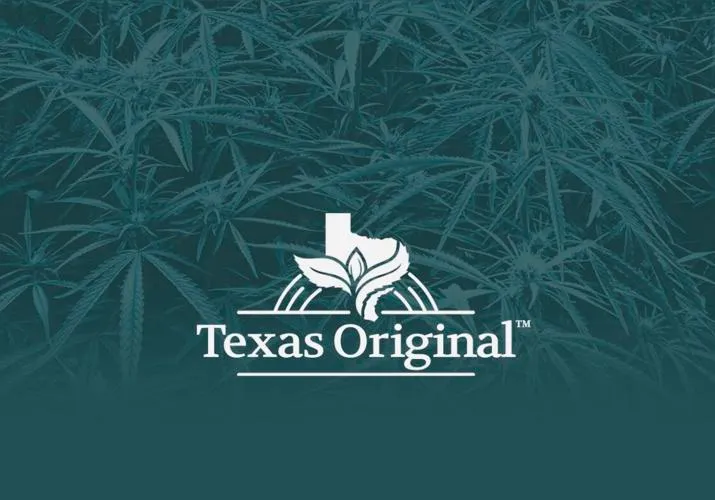
Texas Expands Medical Cannabis Access with House Bill 46: A New Era for Patient
For thousands of Texans who live each day with the burden of chronic pain, traumatic brain injuries, Crohn’s disease, cancer, and other serious conditions, September 1, 2025, will be remembered as a landmark date. On that day, House Bill 46 officially went into effect, reshaping the Texas Compassionate Use Program (TCUP) and offering broader access to medical cannabis for those in need.
The legislation marks one of the most significant steps Texas has taken in addressing patient access to cannabis-based medicine since TCUP was first introduced in 2015. While the original program was tightly restricted and left many patients without a viable pathway to treatment, HB 46 significantly widens the scope of conditions covered, modernizes dosing standards, and opens the door to innovative delivery methods.
A Turning Point in Texas Healthcare
Medical experts and patient advocates alike describe HB 46 as a turning point that could redefine how Texans with chronic and life-limiting illnesses find relief.
“The impact this will have on Texans cannot be overstated,” said Dr. Louis Lux, medical director for palliative medicine and supportive oncology at Texas Oncology. “I’ve witnessed firsthand how medical cannabis transforms the lives of my cancer patients, helping them manage pain and treat side effects when other options have fallen short. This expansion means I can now help other patients who have been waiting years to access the same opportunity.”
For many, this expansion is about more than policy change—it is about dignity, relief, and quality of life. Conditions such as chemotherapy-induced nausea, severe epilepsy, or the relentless pain of Crohn’s disease often resist traditional pharmaceutical approaches. By broadening access to medical cannabis, Texas is giving physicians a more flexible set of tools to help patients reclaim comfort and stability.
Expanded Conditions and Coverage
Previously, only a narrow range of conditions qualified for participation in TCUP. HB 46 dramatically changes that landscape. The bill now recognizes hundreds of conditions that may benefit from medical cannabis treatment. This includes all forms of cancer, post-traumatic stress disorder (PTSD), and epilepsy.
This broader eligibility is particularly meaningful for Texas veterans suffering from PTSD, individuals with treatment-resistant epilepsy, and cancer patients struggling with both pain and treatment side effects. For these groups, cannabis-based therapies have been shown to reduce symptoms, improve sleep, and provide relief that traditional medications sometimes cannot match.
By including more diagnoses under the TCUP umbrella, HB 46 eliminates a barrier that has long frustrated patients and physicians alike. Patients no longer need to navigate a confusing patchwork of restrictions, and doctors can now recommend medical cannabis without fearing that their patients will be excluded due to overly narrow guidelines.
Modernized Dosing Standards
One of the most transformative aspects of HB 46 is its overhaul of dosing restrictions. Prior to the bill’s passage, Texas imposed a strict cap of just 1% THC in medical cannabis products, which severely limited effectiveness for many patients.
HB 46 removes that outdated restriction and replaces it with more practical standards. Patients may now access medication containing up to 10 milligrams of THC per dose and up to 1,000 milligrams per package. This change not only enhances therapeutic potential but also reduces the need for filler ingredients, making treatments safer, cleaner, and more effective.
Physicians are applauding this update because it allows them to personalize treatment plans with greater precision. Patients with high tolerance levels or severe conditions can now receive therapeutic doses without being forced to consume impractically large amounts of cannabis oil or capsules.
New Delivery Methods
Beyond dosage, HB 46 also introduces flexibility in how medical cannabis can be administered. The bill authorizes the use of inhalers, nebulizers, and vaporization devices in addition to traditional oral formats.
“Having new options under HB 46 transforms how we can help people in a safe and regulated program,” explained Dr. Lux. “Different patients have different needs. For some, inhaled methods provide faster relief, while others may prefer oral options for longer-lasting effects. The new range of choices makes treatment much more adaptable.”
This expansion in delivery methods not only empowers physicians and patients but also brings Texas more in line with medical cannabis standards in other states, where inhalation methods are already widely used.
Texas Original Steps Up to Serve
As the state’s leading medical cannabis provider, Texas Original is preparing to meet the surge in patient demand. The company, which already has a reputation for reliable service and high-quality products, views HB 46 as a chance to reach more Texans than ever before.
“Every day we hear from Texans who need relief from medical cannabis but have been unable to qualify for or have difficulty accessing treatment,” said Nico Richardson, CEO of Texas Original. “This expansion allows us to deepen our commitment to serving patients across Texas by reaching thousands more with new locations and products. We’re committed to working with state regulators to bring these life-changing treatment options to patients across Texas as fast and safely as possible.”

One of the major logistical improvements under HB 46 is the authorization of satellite storage locations. This change directly addresses geographic barriers that have plagued the program. In a state as vast as Texas, many patients previously had to travel hundreds of miles to pick up their medicine. With new local distribution points, access will become faster, easier, and far less burdensome.
How Texans Can Access the Program
For patients and families interested in participating, the pathway is clear but structured. Texans can obtain prescriptions through local physicians registered with the Compassionate Use Registry of Texas (CURT), or through telemedicine-based online clinics. Once a patient is entered into the system, they can fill their prescription at approved dispensaries or satellite sites.
Importantly, HB 46 also tasks state regulators with establishing additional rules for new delivery methods by October 1, 2025. This ensures that the expansion is rolled out in a measured, safe, and medically supervised manner.
A More Compassionate Texas
The passage of HB 46 represents more than a legislative milestone—it represents a cultural shift in how Texas approaches patient care and medical cannabis policy. For years, critics argued that the state’s restrictive program failed to meet the real needs of patients. Now, Texas is beginning to close that gap.
Advocates emphasize that while HB 46 is not perfect—it does not, for example, establish a full adult-use program—it nonetheless reflects progress. By broadening eligibility, modernizing dosing, and improving access, the law signals that policymakers are listening to patients and physicians who have long called for change.
For families caring for children with epilepsy, veterans grappling with PTSD, or individuals facing the challenges of cancer treatment, the law’s enactment is more than a policy—it is hope. It is the chance to pursue relief without leaving the state, without turning to unsafe alternatives, and without fear of exclusion.
House Bill 46 has set Texas on a new trajectory in medical cannabis policy. By expanding conditions, modernizing standards, and creating better access pathways, the state has acknowledged both the science and the human stories that underscore the value of cannabis-based therapies.
As the new program unfolds, thousands of Texans will find themselves eligible for the first time. With providers like Texas Original ready to scale services and physicians eager to integrate cannabis into treatment plans, the future of the Texas Compassionate Use Program looks brighter than ever.
For those who want to explore eligibility, resources are available through the Texas Original website and the Compassionate Use Registry of Texas. For many, this moment represents not just an expansion of healthcare options, but a restoration of dignity and relief after years of waiting.





